Bollywood Inquiry February 2020: LOVE AAJ KAL 2, SHUBH MANGAL ZYAADA SAAVDAN, THAPPAD
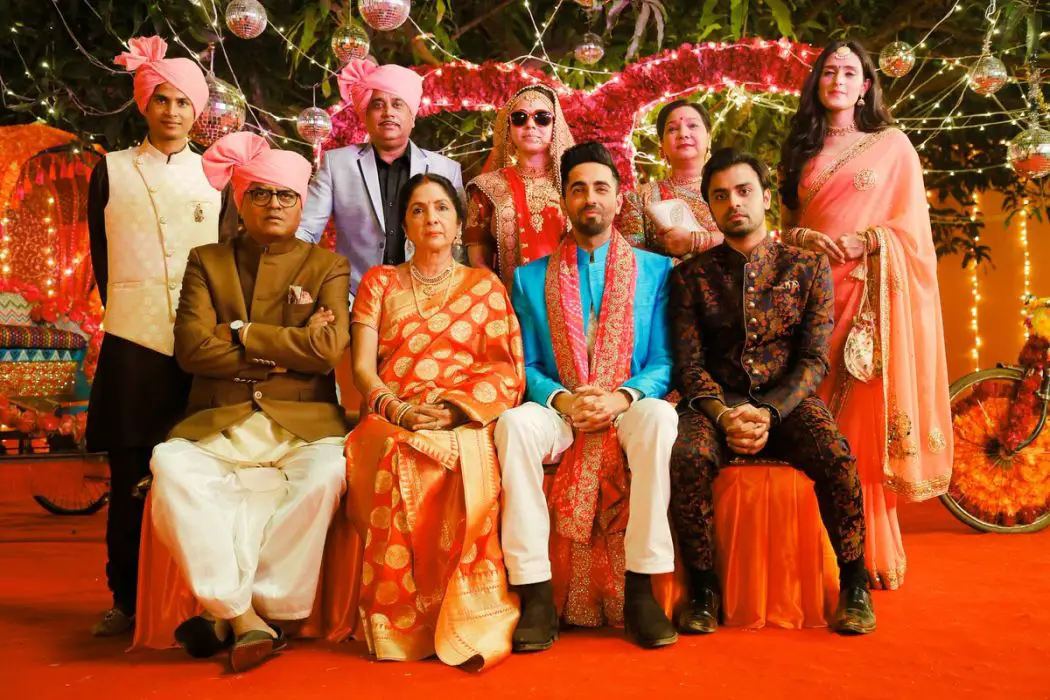
Musanna Ahmed is a freelance film critic writing for Film…
Bollywood Inquiry is a monthly column on the biggest new Bollywood movies. Disclaimer: I may not have seen all of the past month’s globally released features, for varying reasons.
Love Aaj Kal 2 (Imtiaz Ali)
transl. Love These Days
It’s kind of weird to call Imtiaz Ali a maverick, considering he operates within the big studio framework. Yet, amongst those operating in the studio system, Ali‘s is a very distinctive voice, a bona fide Bollywood auteur. Whilst Ali is undoubtedly one of the lucky ones who can author his own work within the blockbuster machine, there’s something else that there’s little doubt about – he has probably not spoken to a woman in a very long time.
Love Aaj Kal is one of the most baffling romantic dramas I have seen in a long time. Questions were raised when the film was first announced, as the filmmaker had already made something similar … an earlier film with the exact same name starring the father of his lead actress! Why he decided to recycle the premise for Saif’s daughter Sara Ali Khan was puzzling and watching the film itself is an experience that leaves you scratching your head until it bleeds, wondering where it all went wrong for the man who gave us Rockstar, Tamasha and the amiable romcom Jab We Met.
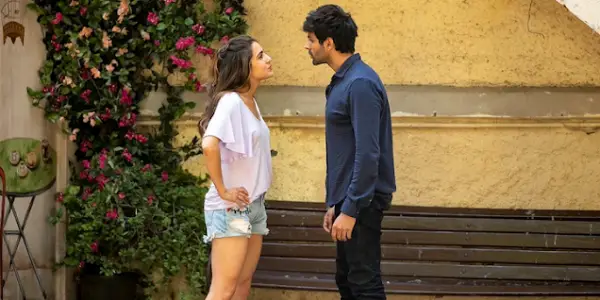
The original Love Aaj Kal was a warm story that revolved around a couple who go through an unconventional breakup, one in which they accept their fates and navigate singledom with an awareness that their soulmate may not be who they expect, whilst committing to staying friends with one another. In parallel to their journey, we are relayed the story of a pair of lovers who went through a similar. It’s a tale about the ceaseless cycle of love and heartbreak across history.
Following a similar structure in depicting two parallel love stories across time, with both men played by the same actor (Kartik Aaryan), there’s a hint early on that the dual tales in this new Love Aaj Kal might be connected through reincarnation, rather than simply being two coincidentally similar stories. Alas, this isn’t the case, robbing the flashbacks of having any particular intrigue, merely serving as a distraction to the present day timeline that dominates the script.
It’s impossible to believe a single choice, dialogue or action, made by any of the lead characters in the movie. Veer and Raghu, the two men played by Aaryan in the present and past timelines respectively, are chastised by Zoey (Sara Ali Khan) and Leena (Aarushi Sharma) for following them. In both instances, the man apologizes for his stalkery, to which the woman responds with, did I ask you to stop following me?
A bizarre thread of romance is born out of this stalking, and the clearly mismatched couple(s) somehow become an item. For millennials Veer and Zoey, the internet is a portal for communication, and Veer’s ghastly pursuit leads him to scour her social media profiles, warranting comparisons to Joe Goldberg in Netflix’s You. Veer even has the same poker face.
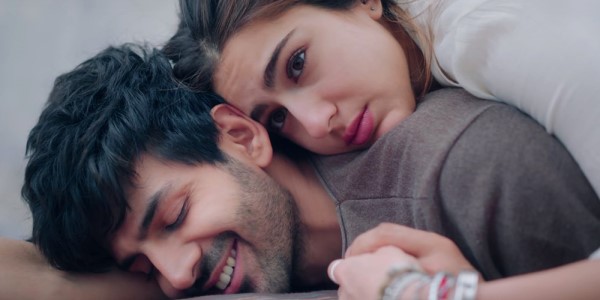
There are some truly bizarre scenes of the awfully written women characters justifying why they should be stalked or objectified, the latter highlighted in a scene where Zoey is questioned about dressing immodestly at work, or choose between a career and love because those are apparently mutually exclusive things. There’s a particularly awkward moment when Zoey’s much older boss repeatedly asks her if she has a boyfriend but, without the desperately needed input from a woman, Ali can’t do anything deeper with the scene to make it anything less than wince-inducing.
I imagine the cringe of the unevenly written characters bypassed Ali’s team of yes-men. The script feels like it was written by the filmmaker when he was a kid and played with toys, using his dolls to roleplay what a naive youth would imagine love was like, kept away in time until he desperately needed a success after the failure of Jab Harry Met Sejal.
Whilst this limp remake/reboot/whatever suffers from a terrible script and bad performances that undercut the credibility of Aaryan and Khan as rising stars, it’s made worse by a tedious length, zero moments of levity, and no exciting dance numbers as in the original film. The final stab in the gut is listening to great songs from the first one, Dooriyan and Twist, have their legacies tainted with poor application and a poor remake, respectively.
Shubh Mangal Zyaada Saavdan (Hitesh Kawalya)
transl. Extra Careful of Marriage
I’m beginning to think Ayushmann Khurrana might need an Assassin’s Creed style pause where he takes a break to focus on reinventing himself again. In his three most recent features, all released within the last six months, he’s developed a working formula that’s beginning to show signs of routineness.
It goes like this – take a social issue that needs greater dialogue in India (male balding, masculinity norms, LGBT), wrap it in a family-friendly package and deliver it to the masses, giving them a wholesome entertainment that seeks to make us laugh and empathise without getting too deep. An appearance by Bhumi Pednekar may or may not be compulsory.
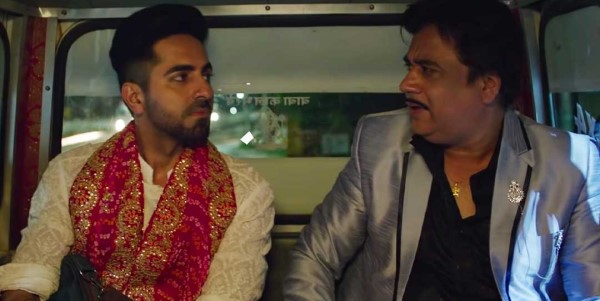
There’s nothing wrong with these films – I’ve recorded my positive responses to Bala and Dream Girl in my previous Bollywood Inquiry columns – but the content lines are blurring, like listening to your favourite singer release a new album that relies on what worked in the last one. For now, though, the formula is safe, especially as this entry is the first of its kind – an openly gay Indian romcom, already seeing backlash from countries such as Kenya and the UAE who have banned it.
Shubh Mangal Zyaada Saavdan focuses on two male lovers, Kartik (Khurrana) and Aman (Jitendra Kumar) who come from a small town – the same sort of milieu where the prejudices were heightened in Dream Girl and Bala – and must deal with Aman’s parents unshifting attitude towards their desire for marrying each other. They want to marry Aman off to a woman, which is the point where the central couple choose to reveal their love with a kiss in the middle of a party, starting a long process of emancipating their boomer parents’ mindsets.
The kiss amusingly frightens all the elders who witness it, a visual gag that works because gay panic is still a phenomenon, considering India only recently repealed the criminalisation of homosexuality. The threshold for innuendo in family films is much greater in Bollywood than Hollywood, a liberty exploited to great comic effect by writer/director Hitesh Kewalya. As always, Khurrana works his magic, exuding charisma and charm in the co-lead role with Kumar perfectly serving as his dance partner. It’s a terrific pairing of talent.
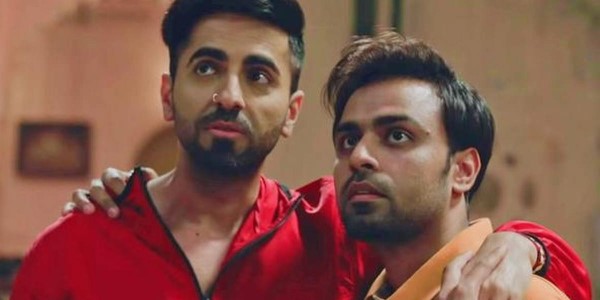
The “love is love” message and the journey of homosexual acceptance within the family manages to satisfactorily come through because of the film’s priority to give us a good time, capitalising on our capacity to laugh and feel at exactly the right moments. If it wasn’t so funny, fast-paced and enjoyable, then it wouldn’t be as powerful. Shubh Mangal Zyaada Saavdan successfully takes the Michael Moore approach to filmmaking – to make a good message movie, you first have to make a good movie.
Thappad (Anubhav Sinha)
transl. Slap
Thappad is one of the finest Hindi domestic dramas in recent years. Recalling the works of Nadine Labaki and Asghar Farhadi, in depicting the sprawling perspectives of women and the painful unravelling of a family respectively, Thappad is a drama about the physical and emotional violence that’s inflicted by upon women by men, in ways big and little. No, this is not a man-hating film or whatever blind charges there are being thrown towards the filmmakers for focusing on female victims.
For one, Anubhav Sinha is way too smart of a filmmaker to be so immature in depicting such a sensitive topic. Then there’s the fact that his co-writer is a woman, Mrunmayee Lagoo, and their brilliant screenplay carefully considers the motivations, the conditioning, the circumstances, and the consequences that surround such situations. Furthermore, as with Sinha‘s previous film Article 15, social and economic classes are accounted for when considering the difficulty for women who want to leave their abusive spouses.
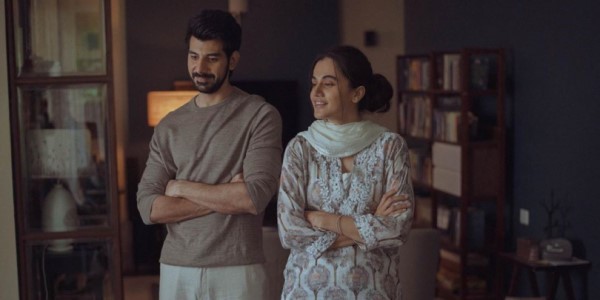
Amrita (a possibly career-best Taapsee Pannu) is a housewife who’s happy to assume such a role as her entrepreneuring husband Vikram (TV series alumni Pavail Gulati) works hard towards a promotion that could allow him and his spouse to relocate to London. At a party one evening, he learns that he may not actually get what he deserves as he was led to believe, as the company’s CFO tells him that the board just doesn’t trust him to bring in more investors. During a bitter exchange between the two, Amrita tries to prevent things from escalating by pulling him back and he turns around and unleashes his anger onto her with a full-bodied slap.
A deafening silence immediately follows, and a deep depression sinks in as Amrita proceeds the following days in silence with a numbed expression. The effect that the slap has on their relationship is irreversible, with any and all attempts by Vikram to correct the course only exacerbating their marriage. Eventually, Amrita seeks out the help of top lawyer Neta Jaisingh, played by Maya Sarao, a relatively new actress whose most surprising credit is as a set dresser for London Has Fallen. Neta helps Amrita initiate a divorce.
The filmmakers’ master stroke is to open the film with 30 minutes of disparate character work, depicting the lives of Amrita, her househelp Sunita (Soni breakout star Geetika Vidya Ohlyan), her widowed neighbour Shivani (Dia Mirza) and Neta before we fully understand how their lives intersect.
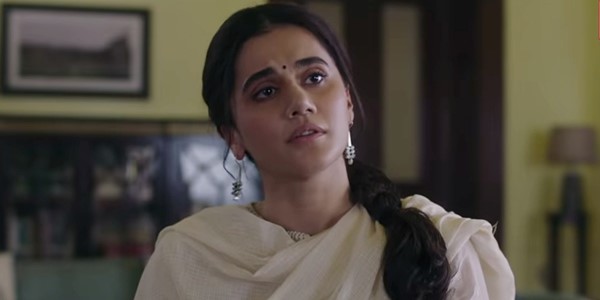
Each of these characters is divinely realised, as we understand both their individualism and their role as a significant other under their own roof versus outside in public. Thappad recognises the full spectrum of domestic violence and sensitively considers the different reactions and ways of how affected women cope. In other filmmakers’ hands, it might have become a cheap revenge fantasy.
Thappad holds a lot of weight thematically but formally it’s a very strong film too. The film mostly takes place in house interiors and the thought-provoking mise-en-scene remarks on history and how the signs aren’t always there. Lots of loving pictures taken together hang up on the wall of each couples’ house, and Amrita’s shifting arrangement of furniture correlates to her and husband’s physical distance. Then there’s the traumatising juxtaposition of a TV reporting Neta’s latest legal success whilst she’s sexually assaulted against the wall besides it. It’s virtually impossible to not have a strong response to this film.
Next Month
Two big action movies featuring major stars – Sooryavanshi (Akshay Kumar) and Baaghi 3 (Tiger Shroff) are set to explode at the box office but the film most likely to be worth your time is Irrfan Khan-starrer Angrezi Medium, a quasi-sequel to the beloved 2017 comedy-drama Hindi Medium (available on Prime Video). Check the trailer out below and stay tuned for next month’s column.
You can read previous editions of Bollywood Inquiry here.
Does content like this matter to you?
Become a Member and support film journalism. Unlock access to all of Film Inquiry`s great articles. Join a community of like-minded readers who are passionate about cinema - get access to our private members Network, give back to independent filmmakers, and more.
Musanna Ahmed is a freelance film critic writing for Film Inquiry, The Movie Waffler and The Upcoming. His taste in film knows no boundaries.













